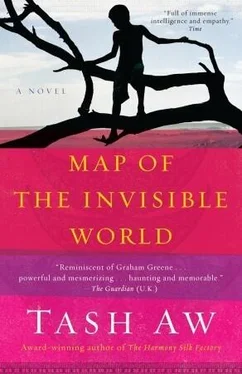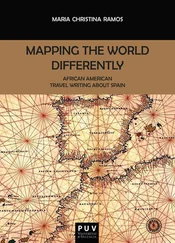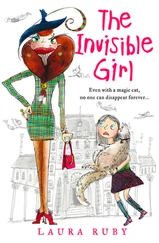Tash Aw - Map of the Invisible World
Здесь есть возможность читать онлайн «Tash Aw - Map of the Invisible World» — ознакомительный отрывок электронной книги совершенно бесплатно, а после прочтения отрывка купить полную версию. В некоторых случаях можно слушать аудио, скачать через торрент в формате fb2 и присутствует краткое содержание. Год выпуска: 2010, Издательство: Spiegel & Grau, Жанр: Современная проза, на английском языке. Описание произведения, (предисловие) а так же отзывы посетителей доступны на портале библиотеки ЛибКат.
- Название:Map of the Invisible World
- Автор:
- Издательство:Spiegel & Grau
- Жанр:
- Год:2010
- ISBN:нет данных
- Рейтинг книги:4 / 5. Голосов: 1
-
Избранное:Добавить в избранное
- Отзывы:
-
Ваша оценка:
- 80
- 1
- 2
- 3
- 4
- 5
Map of the Invisible World: краткое содержание, описание и аннотация
Предлагаем к чтению аннотацию, описание, краткое содержание или предисловие (зависит от того, что написал сам автор книги «Map of the Invisible World»). Если вы не нашли необходимую информацию о книге — напишите в комментариях, мы постараемся отыскать её.
comes an enthralling novel that evokes an exotic yet turbulent place and time—1960s Indonesia during President Sukarno’s drive to purge the country of its colonial past. A page-turning story,
follows the journeys of two brothers and an American woman who are indelibly marked by the past — and swept up in the tides of history.
Map of the Invisible World — читать онлайн ознакомительный отрывок
Ниже представлен текст книги, разбитый по страницам. Система сохранения места последней прочитанной страницы, позволяет с удобством читать онлайн бесплатно книгу «Map of the Invisible World», без необходимости каждый раз заново искать на чём Вы остановились. Поставьте закладку, и сможете в любой момент перейти на страницу, на которой закончили чтение.
Интервал:
Закладка:
There were soldiers guarding the doors. None of them had even looked at Adam as he walked in. There had been a group of young men, not much older than himself, getting out of a van just as he arrived. They looked like athletes — soccer players, maybe. They were dressed simply but neatly, as Adam was, some of them clutching cameras. They were excited to be there, smoothing their hair with both hands and buttoning the top button of their shirts, wanting to look smart. Adam had slipped in with them, trying to blend in. He’d combed his fingers through his hair the way they did and made sure his collar was buttoned at the neck.
And now they were drifting away, shuffling uncertainly on the smooth floor of the lobby, and Adam was alone again. He tried to remember Din’s instructions: He looked around for the Batik Bar but could not see it. There were too many people here. Someone approached him and he drew back instinctively. A young woman dressed in a kebaya was holding something out to him, a tray bearing purple and white orchids, each one wrapped in a glossy, green leaf, held together by a gold pin, and he understood that he was meant to take one of the orchids. At the far end of the lobby he saw a staircase, broad and curving, lined with gold banisters, leading to a mezzanine level that overlooked the lobby; if he could just get there he would be able to go up to the gallery and get a clear view of everything. He made his way slowly toward the staircase, but he could walk no more than a few steps before finding his path obstructed. People stood chatting in large groups and Adam did not wish to announce his presence by saying “excuse me,” so each time he met an obstacle he had to stop and search for an alternative route. Each time he brushed past someone he felt the heavy bulk of his bag; it seemed to have become even bigger and more prominent since he had stepped into the hotel.
The stairs were not far now. A large party of foreigners — Japanese, he thought — blocked his way. Another waiter came by with a tray, this time bearing glasses of cold honey-colored drinks. He paused not far from Adam, hesitating; Adam could tell that he was not sure whether he should serve Adam. He looked like a boy from the islands, Adam thought, maybe even from Perdo. Maybe he recognized Adam from somewhere. He looked directly at Adam’s face, then dropped his gaze to Adam’s feet, scrutinizing every item of Adam’s clothing before staring once more at his face. And then he turned away, offering his tray to a European man nearby.
Adam felt the strap of the satchel beginning to chafe on his collarbone. Every time he moved, even if it was just to turn his head, it rubbed painfully against his skin. For a few moments he thought about opening the bag and taking some of its contents out in order to lighten the load. But he knew he could not do that. He knew he could not open the bag here in the lobby; he did not even want to think about it. All he needed to do was to find the restroom and leave the bag there. Then he could walk away and continue with Life, whatever Life was now. If he did what Din told him, Din would help him find his brother. They would go to Malaysia together and find Johan, and there would be a New Life, one which would not be burdened by empty memories.
He noticed a parting in the group of Japanese men: a small gap, just enough to squeeze through. It would not last long. Adam pushed his way through this narrow corridor, turning his body sideways so that he barely brushed past the men. Someone moved, knocking into him; he felt the softness of the man’s jacket against his cheekbone and caught the whiff of fragrant aftershave; he heard the man say “sorry” but he did not turn back. He was at the foot of the stairs when he noticed a sign, a square board painted with a colorful motif of batik patterns. The gold letters and the arrow on it indicated where the bar was; Adam headed in that direction and soon saw another arrow pointing the way to the men’s lavatories. Din was right, he thought, it was so easy. There was nothing to worry about.
The lavatories were cool and silent, sheltered from the bright chatter of voices in the lobby, lit only by wall sconces that cast a faint amber glow. The walls were of black marble, flawless and shiny even in the absence of bright light; and in one corner there was a large, white orchid plant whose leaves were beginning to turn leathery and brown at the edges. An old man in a white uniform was wiping around the sinks with a dirty cloth; he worked slowly, moving the rag in lazy, uneven circles, watching Adam in the mirror. A sudden hiss made Adam start: The urinals filled with water that gushed loudly, reverberating in the quiet space. Adam went quickly to the cubicle at the far end of the row of four; he locked the door and remained very still, listening for the old janitor as the flushing of the urinals subsided. At first he thought he could hear the limp flopping of wet cloth on hard marble, but then there was silence. The janitor’s rubber-soled shoes squeaked on the floor but Adam could not tell where he was. Adam lowered the toilet seat, letting it fall with a clatter. He coughed. Still he could not tell if the janitor was there. He lifted the satchel from his shoulders and placed it very gently behind the toilet, deep in the corner. Even if someone came into the stall he would not see the bag unless he looked for it. Now that he had gotten rid of the bag he felt free and unencumbered once again. But if the janitor saw him emerge without it he would be in trouble; he had to wait until the old man had gone before he could leave.
He waited and listened: nothing. Was that someone moving? He held his breath and listened again. Was that the sound of running water, a pipe somewhere? In the lobby a band had begun to play, something bright and brassy, with wind instruments — a trumpet, Adam thought. It made it difficult for Adam to discern the different noises — which sound was being made by whom? He had to make a decision: If he stayed in the cubicle for much longer the janitor would begin to get suspicious. He coughed again, though he did not know what for — it sounded less unnatural than standing there in complete silence. He listened again: still nothing, as far as he could tell. He reached out and touched the door of the stall, feeling the smoothness of the varnished wood. He waited and wondered: How would this end?
Nothing in life is certain, he remembered Karl telling him; you just have to surrender to chance and let life take you where it wants to. If you do that, my son, you’ll probably end up exactly where you dreamed you would be. They had been sitting on the steps in front of their house, early in the evening; the sun was disappearing theatrically below the horizon as it did on every clear evening in Perdo. They were trying to fix the radio, which had broken, and it was taking them a very long time. Tell me again about the war, Pak , Adam had said; so Karl told him about how he had left Bali by stealth, in the dead of night. Adam loved this story of danger and adventure. He loved hearing how Karl had traveled by boat for weeks until he finally reached Holland, thinking it was safer for him there, but then Holland was invaded anyway. Adam loved hearing Karl say, “I lay in bed every night praying that I wouldn’t die because if I died I would not be able to get back to Indonesia; I used to dream about being somewhere else, in another world far far away.” Why didn’t you want to stay in Holland? Adam had asked. And Karl had said simply, “I don’t know why. All I knew is that I had to come back here, to where I belonged. Life is like that, Son. Sometimes you don’t know why you do something, you just do it. You just surrender yourself to chance and hope that it takes you to all the things you ever hoped for.”
Adam reached for the door and opened it, walking quickly toward the exit. The old janitor was still there. No matter; he was free at last, able to move quickly and without fear. He had done what was needed of him, and now he would begin his New Life, and it would lead him eventually to Johan — to his past and his future. He walked briskly, past the Batik Bar and back out into the lobby. This time there was even less space among the people, but Adam was more insistent than he had been before, working his way through the tight maze of wool-and silk-clad bodies; he muttered quick excuse me’s and ignored the sighs of annoyance that he received in reply. He fixed his sights on the great cubic chandelier that hung over the center of the lobby: If he could just make it to that point he would then be able to make a break for the doors beyond.
Читать дальшеИнтервал:
Закладка:
Похожие книги на «Map of the Invisible World»
Представляем Вашему вниманию похожие книги на «Map of the Invisible World» списком для выбора. Мы отобрали схожую по названию и смыслу литературу в надежде предоставить читателям больше вариантов отыскать новые, интересные, ещё непрочитанные произведения.
Обсуждение, отзывы о книге «Map of the Invisible World» и просто собственные мнения читателей. Оставьте ваши комментарии, напишите, что Вы думаете о произведении, его смысле или главных героях. Укажите что конкретно понравилось, а что нет, и почему Вы так считаете.












